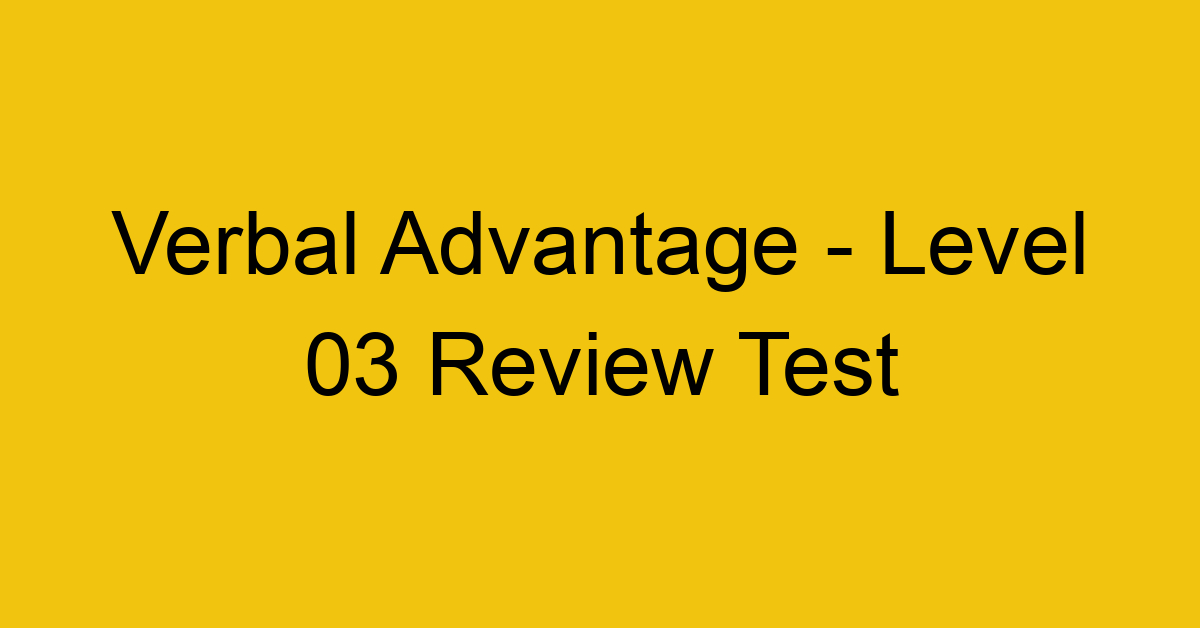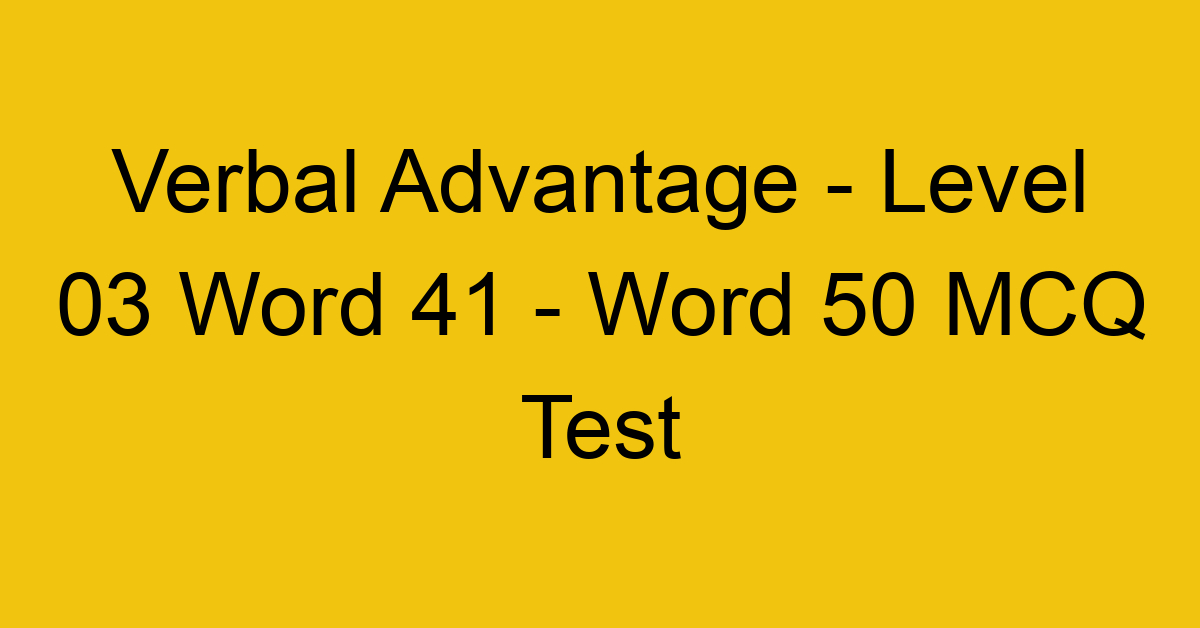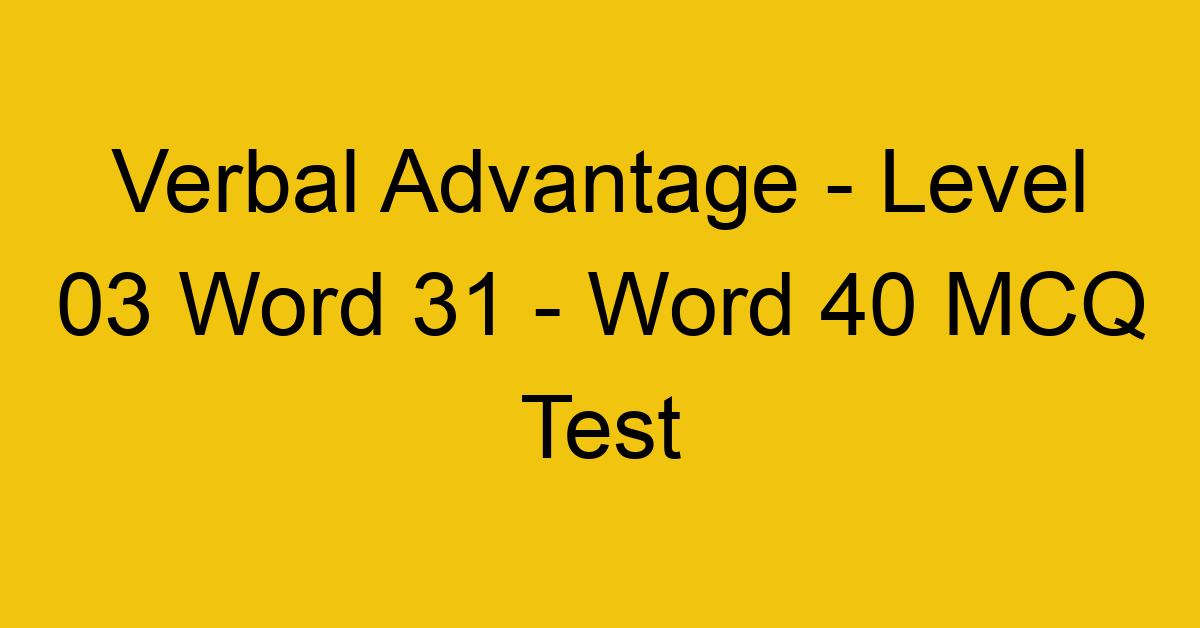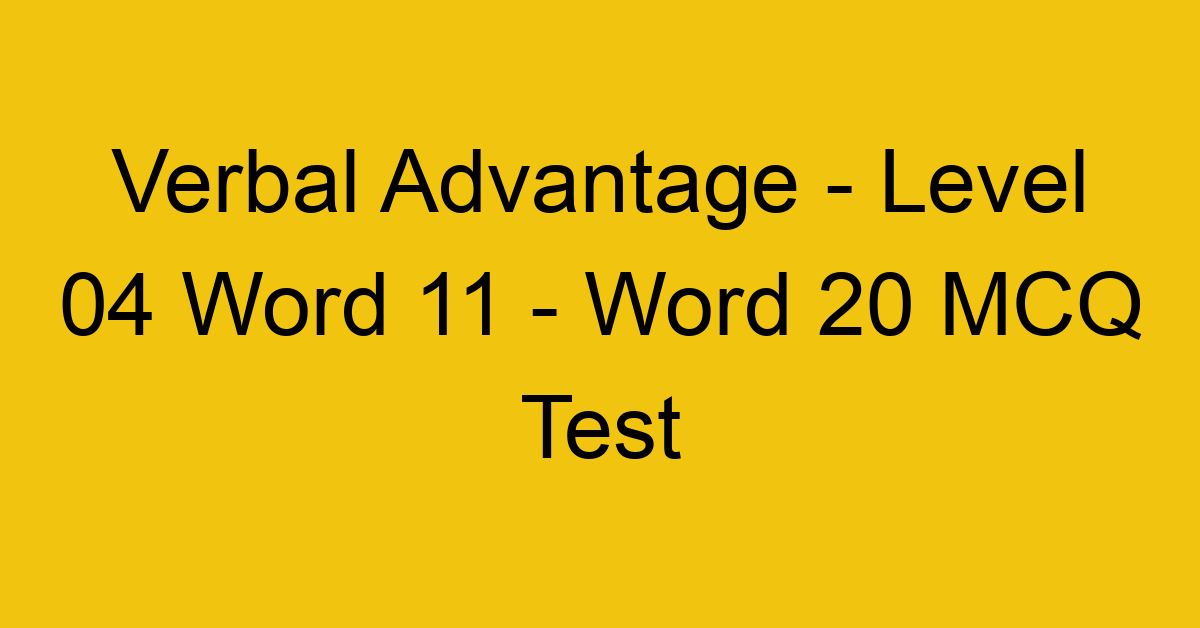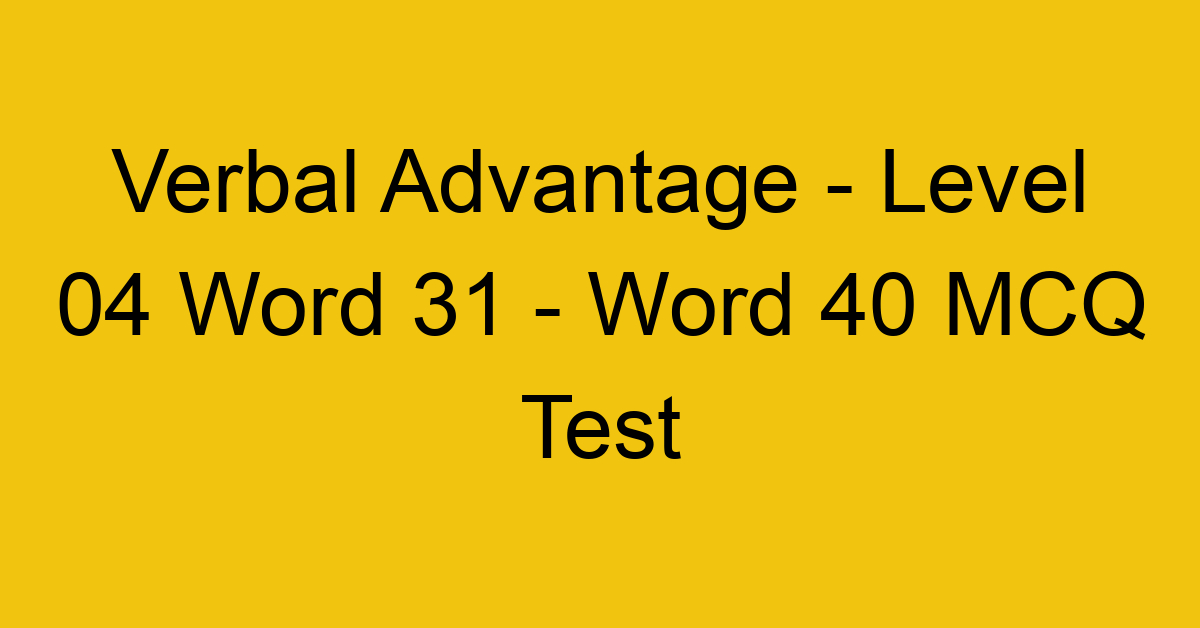Verbal Advantage - Level 04 Word 1 - Word 10 MCQ Test
classWord List
- Word 1: Provident [PRAHV-i-dint]
Thrifty, economical, saving or providing for future needs.
→
Synonyms of provident include prudent, word 47 of Level 1, and frugal, word 35 of Level 2.
Provident and the verb to provide both come from the same Latin root. One meaning of the verb to provide is to prepare for some anticipated condition in the future, as to provide for a rainy day. Provident means providing for the future, especially in the sense of saving money for some anticipated need: “After the birth of their first child, Sam and Sarah vowed to be provident and start putting aside some money every month for college and retirement.”
- Word 2: Impute [im-PYOOT]
To charge or attribute, especially with a fault or misconduct, lay the responsibility or blame upon, ascribe, assign.
→
Unlike the verb to credit, which has a favorable connotation, and the verbs to assign and to ascribe (uh-SKRYB), which are neutral, the verb to impute often has a negative connotation. According to the famous eighteenth-century essayist and lexicographer Samuel Johnson, “We usually ascribe good, but impute evil.” (Do you need to look up lexicographer?)
To impute means to charge with something bad, attribute the blame for, lay the responsibility on: “They imputed their fourthquarter losses to sagging sales and fluctuations in the stock market”; “Some critics impute the decline in verbal skills among young people today to watching too much television.”
The corresponding noun is imputation, a charge or accusation, the act of imputing, as “Company officials vigorously denied the imputation of mismanagement.”
- Word 3: Astute [uh-ST(Y)OOT]
Shrewd, clever, perceptive, discerning, acute, keenly aware, quick-witted.
→
More difficult synonyms of astute include sagacious (suh-GAYshus, word 6 of Level 8), perspicacious (PUR-spi-KAY-shus), and sapient (SAY-pee-int).
Astute usually is used in a positive sense to mean showing keen intelligence and a shrewd ability to protect one’s interests or avoid being deceived: an astute investor; an astute negotiator; an astute observer of human behavior. Occasionally it has the negative suggestion of clever in a cunning or self-serving way, as an astute self-promoter, an astute political operator.
- Word 4: Neophyte [NEE-uh-fyt, like knee a fight]
A beginner, novice, amateur, tyro; specifically, a new member of or convert to a religion.
→
There are several interesting words for various types of inexperienced persons.
Tyro (TY-roh) comes from a Latin word meaning a recruit in the Roman army, a newly enlisted soldier. Tyro is used today to mean a raw beginner, one who may be eager to learn but who is utterly incompetent.
Amateur (AM-uh-tur or -chur) comes from the Latin amare, to love. By derivation an amateur is a person who does something for the love of it rather than for money. An amateur may or may not be skilled, but the word often implies a lower level of competence than expert or professional.
A dilettante (DIL-uh-TAHNT or DIL-uh-TAHNT) is an amateur practitioner of an art, such as music, painting, acting, dancing, or literary composition. Dilettante is often used disparagingly of someone who dabbles in something and lacks the serious discipline necessary to excel.
Like tyro, both novice and neophyte refer to a person just starting out at something. Tyro emphasizes the beginner’s incompetence; novice emphasizes the beginner’s inexperience; and neophyte emphasizes the beginner’s enthusiasm.
- Word 5: Enigma [i-NIG-muh]
A mystery, puzzle, riddle, perplexing problem, something or someone hard to understand or explain.
→
Anything baffling, inexplicable (preferably in-EK-spli-kuh-buul, commonly IN-ek-SPLIK-uh-buul), or inscrutable (word 48 of Level 3) may be described as an enigma: “She is an enigma to me”; “Their motives are still an enigma”; “The case presents us with one enigma after another.”
- Word 6: Credence [KREE-dints]
Belief, acceptance, especially belief in a published report or acceptance of another’s opinion or testimony: “In recent years many medical studies have shown that reducing fat intake can help prevent heart disease, and there is now widespread credence among the public that a low-fat diet is more healthful.”
→
Credence, creed, credible, and credulous all come from the Latin credere, to believe. Credible means believable, and credulous means willing to believe without questioning. Creed, word 21 of Level 1, refers to a declared belief or formal set of opinions: “Conservatism is his creed.” Credence refers to belief itself, to acceptance of something stated or heard: “It is dangerous to give credence to gossip.”
Credence is often used with the verbs to give or lend. “She gave no credence to their claims.” “His neat appearance and confident manner lent credence to his story.”
- Word 7: Venerate [VEN-uh-rayt]
To respect deeply, revere, regard with awe and adoration.
→
In a strict sense, to venerate means to regard as holy or sacred; to revere means to regard with great respect and honor. We revere great leaders, thinkers, and artists; we venerate holy persons, sacred writings, and religious or moral principles.
The adjective venerable, worthy of veneration, of being venerated, is more loosely applied. It is often used of something or someone old or long-established: a venerable tradition is an old and deeply respected tradition; a venerable cause is longstanding and worthy of profound respect.
- Word 8: Garrulous [GAR-uh-lus]
Talkative, especially in a rambling, annoying, pointless, or longwinded way.
→
Garrulous comes from the Latin garrire, to chatter, babble, talk in a rambling and tiresome way. In zoology (properly pronounced zoh-AHL-uh-jee, not zoo-) there is a genus of birds called Garrulus. This genus contains several of the common jays, which are known for their harsh, chattering call. Both by derivation and by association, garrulous means chattering like a jaybird. The garrulous person talks for the sake of talking, usually about trivial matters, and often babbles on when no one else is interested in listening.
Synonyms of garrulous include verbose (word 30 of Level 2), loquacious, voluble (word 1 of Level 5), and prolix (word 1 of Level 9). Antonyms of garrulous include reserved, reticent, taciturn (word 2 of Level 3), and laconic (word 18 of Level 3).
- Word 9: Trenchant [TREN-chint]
Keen, penetrating, vigorously effective, sharp and to the point.
→
Synonyms of trenchant include forceful, acute, and incisive.
Incisive (in-SY-siv) applies to expression that gets right to the point or penetrates the heart of the matter. Cutting and biting imply harsh or sarcastic expression that hurts the feelings. Trenchant, which comes from a French verb meaning to cut, suggests both the forcefulness of incisive and the sharp, painful implication of cutting and biting.
A trenchant analysis is keen and vigorous; a trenchant style is sharp and clear; a trenchant remark displays penetrating insight and has the ability to wound.
- Word 10: Autonomous [aw-TAHN-uh-mus]
Independent, self-governing, not under the control of something or someone else.
→
Autonomous comes from the Greek autos, self, and nomos, law, and means literally self-ruling. From the Greek autos, self, comes the English combining form auto-, which also means self. Auto- appears in many English words, including autobiography, a story of oneself, of one’s own life; autograph, one’s own signature; automobile, literally a self-moving vehicle; automatic, literally selfthinking, done without conscious thought; and autocracy (awTAHK-ruh-see), not self-government but rule by one self or one person—hence, dictatorship, tyranny, despotism (DES-puh-tiz-’m).
The corresponding noun autonomy (aw-TAHN-uh-mee) means self-government, independence.
The heart is an autonomous organ; it functions by itself. An autonomous company is independent, not a subsidiary (suhb-SID-ee-ER-ee—five syllables, not four) of another corporation. When the United States won its independence from Great Britain, it became an autonomous nation.

